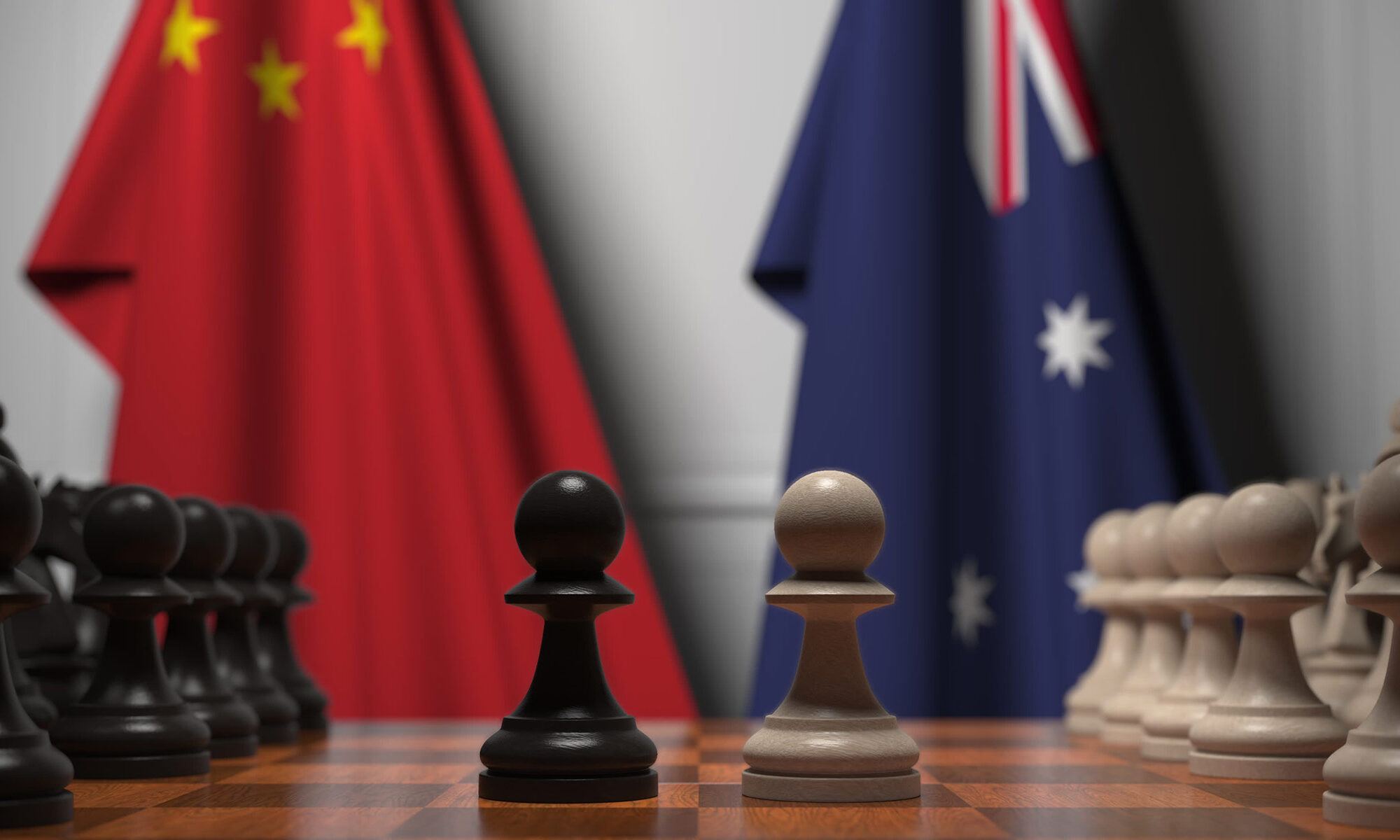Two starkly different viewpoints published in The Australian over Canberra’s posture toward China show the contrasting approaches to strategic uncertainty and perception of threat from Beijing. The first article was posited by Hugh White on November 21 and the second was put forward by Peter Jennings two days later.
China, the Bogeyman of the New Cold War
White, emeritus professor at the Australian National University, tends to a policy of national accommodation regarding China and its apparent inexorably growing influence in all aspects of world affairs. Therefore, he has not found a trip-wire that generates bolder positioning against Chinese activities and is unlikely to do so in the future.
Jennings, executive director of the Australian Strategic Policy Institute (ASPI), takes the position that Australia needs to have trip-wires with China and that Canberra should show early robustness to demonstrate it will take action to protect its current way of existence.
Two Schools
The accommodation and assertion schools of thought both have valid components.
When China’s policy shift over Australia became publicly apparent, the accommodation school urged the Australian government to exercise caution and demanded ministerial contact to remedy the financial damage done to export income by Beijing. Negligible attention was paid to other demonstrations of Chinese influence and control exerted through Australian institutions, notably via universities, despite the strength of evidence published by the ASPI and by researchers such as Clive Hamilton in his 2018 book, “Silent Invasion.” Concern about the economic consequences declined, with exporters finding alternative markets following the May 2020 Chinese sanctions through their market adjustments. This leaves the main line of opinion focusing on various thresholds for tougher Australian policy toward China and analysis of the intent of the United States and its own ability to deal with Beijing.
For the assertion school, Australia’s policy needs to be clear and firm, with more elaborate military arrangements with like-minded countries to deter China and politically strengthen the international system. The favorable rules-based order continues to provide the basis for cooperation between the European Union, the US and countries in South and Southeast Asia and the Pacific.
With pushback against China, its approach is likely to shift from growing its appeal to pressing its influence. A 2021 survey by the European Think-Tank Network on China (ETNC) about the standing of Beijing’s soft-power and influence in 17 European countries shows that European states are disinclined to listen to China and actively deny it leverage from its soft-power investments and economic importance.
Our response to China will have to both measure against those of other international friends and press ahead where it must. But it will also draw on nationally coalescing factors that create an acceptable and comprehensible foundation for national resistance.
Australia is not mono-cultural, nor has it the satisfaction of a core religious, ethnic or aspirational identity. Additionally, it has weak internal cohesion on common values that can mobilize national efforts to project influence sufficient to comfort the country about its security.
Looking at “Sacred Values”
“Sacred values” are not only what drives people and groups into, for example, collective defense or violent extremism. They also drive people in negotiations to settle conflicts. Sacred values, those generally not tradeable against pecuniary or operational sustainment, will drive Australian policy on China. Such values include the conception of human rights, the role of the individual within society, liberty and the rule of law, and political participation in setting laws.
When asked to trade-off sacred values in a deal with a peace dividend, research shows that people typically react with a hostile “backfire effect,” plus an increased commitment to these sacred values, in addition to higher potential for protective violence or preparation for it. Researchers Scott Atran and Jeremy Ginges show evidence for this.
The role of sacred values is applicable to all regions and levels of discord and has been so demonstrated in controlled experiments. Sacred values are also layered, in that limited trade-offs for assured security can take place — depending on the nature of the threat, of course. Dismissal of sacred values fails.
Sacred values relate to group emotion and identity and are used by political leaders to mobilize their constituents to shape acceptance of policy changes and action. This point is made clear in the 2019 book by Barry Richards, “The Psychology of Politics,” which uses psychoanalytic ideas to show how fear and passion shape the political sphere in changing societies and cultures. The use of “sacred values” language also discredits adversaries during political debate. This may well later befall Australian business lobbies because sacred values arguably matter more than money.
When our government uses sacred values rhetoric, it will incite what researcher Morgan Marietta calls a “valorisation effect,” whereby the political leader using sacred rhetoric is seen as principled and determined. There can be no other way to respond to the breadth of the challenges posed by the China issue.
Jennings says the China threat is not tolerable on a structural and national autonomy basis. White implies that the China threat is tolerable on the basis of trade, income and employment and that we should adapt to its new geopolitical environment.
This debate is not yet settled in the Australian political world. There are many other issues in play. For example, what do Australia’s Southeast Asian friends think? Are Australia’s European allies thinking along the same basic lines? But we will get to use sacred values sooner than we expect. This is because China has not indicated that it intends to cease or decrease its foreign policy activity, which is seen by many states as both malignant and dangerous.
Research on “sacred values” in political negotiations shows that a lack of outcome options, inappropriate negotiating procedures and poor recognition of emotions set in a context where sacred values are in play typically cause poor results. China’s diplomatic rhetoric and methods directed at Australia embody these factors.
How will a possible future shift in Australia’s foreign policy position, as a result of Chinese pressure, be seen by the public and presented by the political class, especially if there are sacred values involved? Nichole Argo and Jeremy Ginges write about the management of this question in their essay titled, “Beyond Impasse.”
As the China debate continues, we can ask these questions: What are the current declared values we attach to foreign policy regarding China? Are the values “today’s values” or are they values linked to future goals, thereby allowing their adjustment by political leaders in the course of circumstance? Can we concede to China on one value alone, and would doing so be a tool to protect other values?
Clarification
The Australia/China question has further evolving factors to watch. We need to observe the rhetorical framing and content of any future dialogue with China and assess this not only against our values and interests, but also against the set we assess to be held by our allies in their dealings with Beijing. How are the indicators of Australia’s sense of self and identity being used or indeed being created by our political and public leaders? In view of the world economy, our region and our needs, what appears to being traded-off in caution toward China? Is our strategy on China nationally or sectorally driven? If sectorally, what is the level of reference to sacred values in the promotion of, for example, education exports over responses to China’s territorial and political acquisitiveness in the Pacific?
So far, Australia does not have a clear path and must choose between one of two directions: trade and money or values. The choice is clarifying. The big issue for the government is to create a wider and convincing range of responses to China. To do so means consolidating a national position around how hard to pin down Australian values. This matter deserves attention. It requires the absorption by Australia’s various identity communities of a robust set of values and principles that commonly define the country and its citizens’ rights, responsibilities and expectations.
So far, the policy over China has largely been reserved for expert strategists. For a nationally effective response to the threat of an unfavorable fundamental change in circumstances caused by China, sacred values need to be found, clarified and called on as required to bolster policy resolve.
The views expressed in this article are the author’s own and do not necessarily reflect Fair Observer’s editorial policy.
For more than 10 years, Fair Observer has been free, fair and independent. No billionaire owns us, no advertisers control us. We are a reader-supported nonprofit. Unlike many other publications, we keep our content free for readers regardless of where they live or whether they can afford to pay. We have no paywalls and no ads.
In the post-truth era of fake news, echo chambers and filter bubbles, we publish a plurality of perspectives from around the world. Anyone can publish with us, but everyone goes through a rigorous editorial process. So, you get fact-checked, well-reasoned content instead of noise.
We publish 2,500+ voices from 90+ countries. We also conduct education and training programs
on subjects ranging from digital media and journalism to writing and critical thinking. This
doesn’t come cheap. Servers, editors, trainers and web developers cost
money.
Please consider supporting us on a regular basis as a recurring donor or a
sustaining member.
Support Fair Observer
We rely on your support for our independence, diversity and quality.
Will you support FO’s journalism?
We rely on your support for our independence, diversity and quality.







